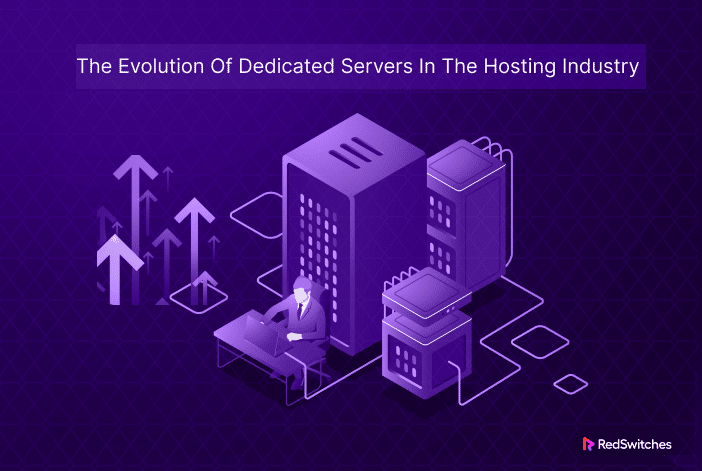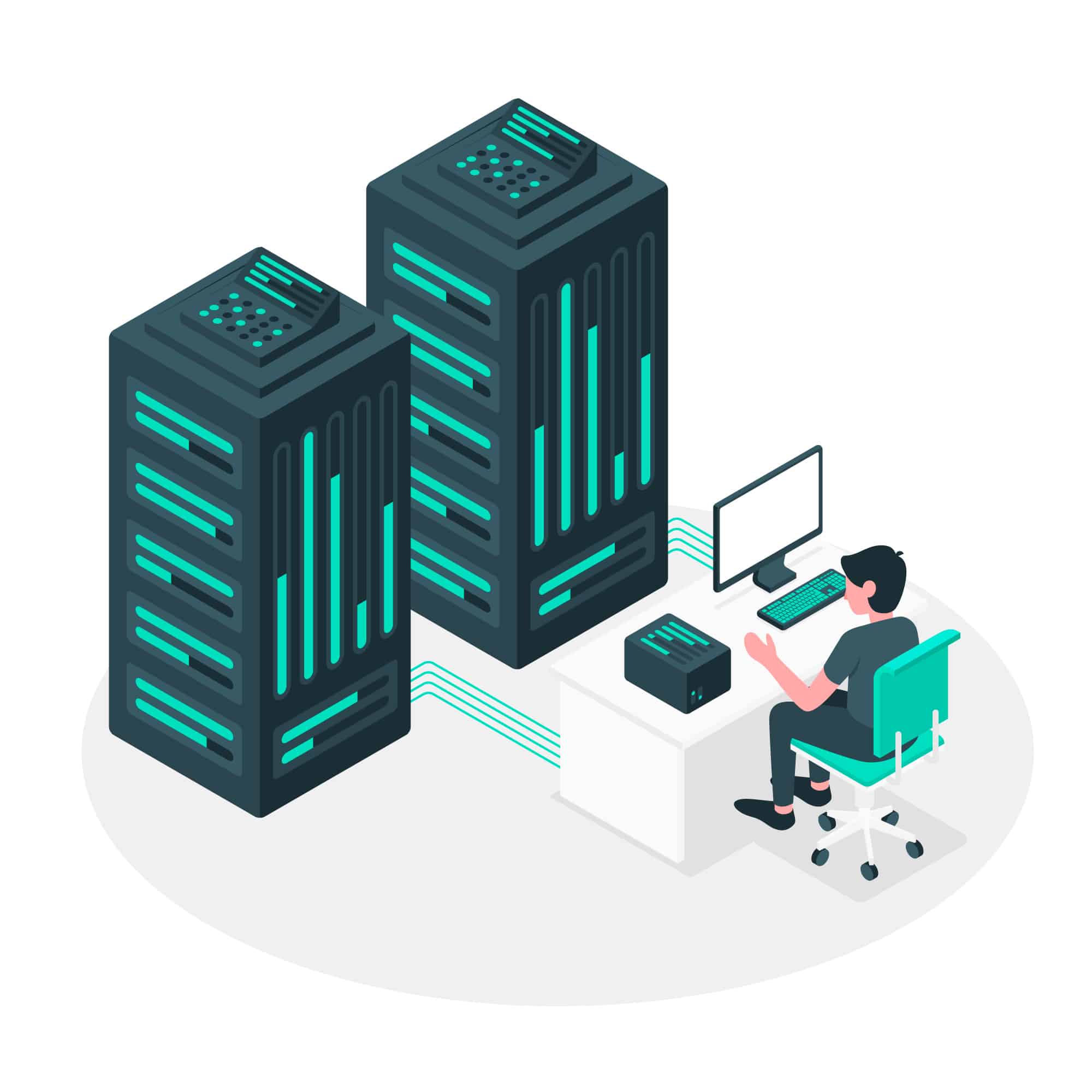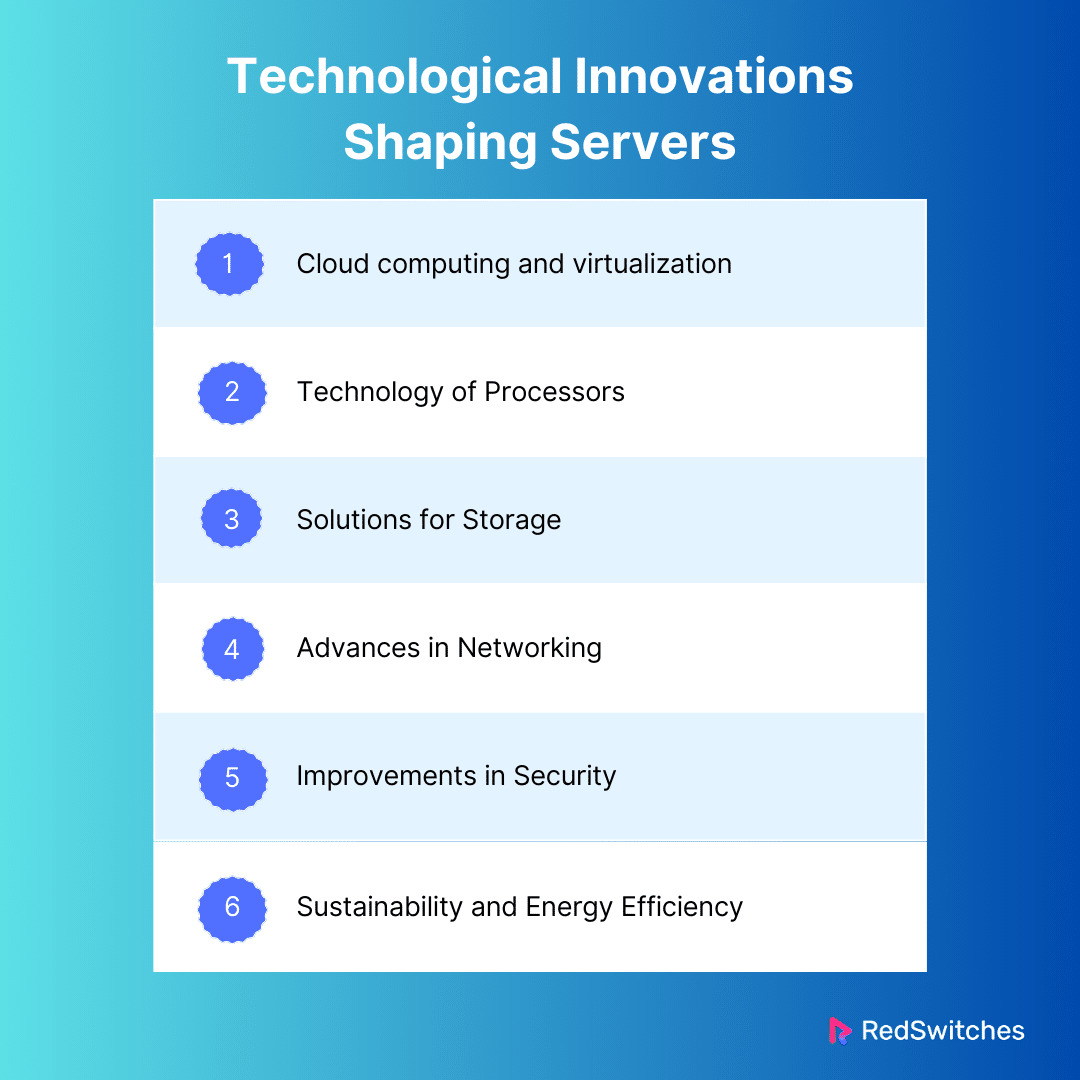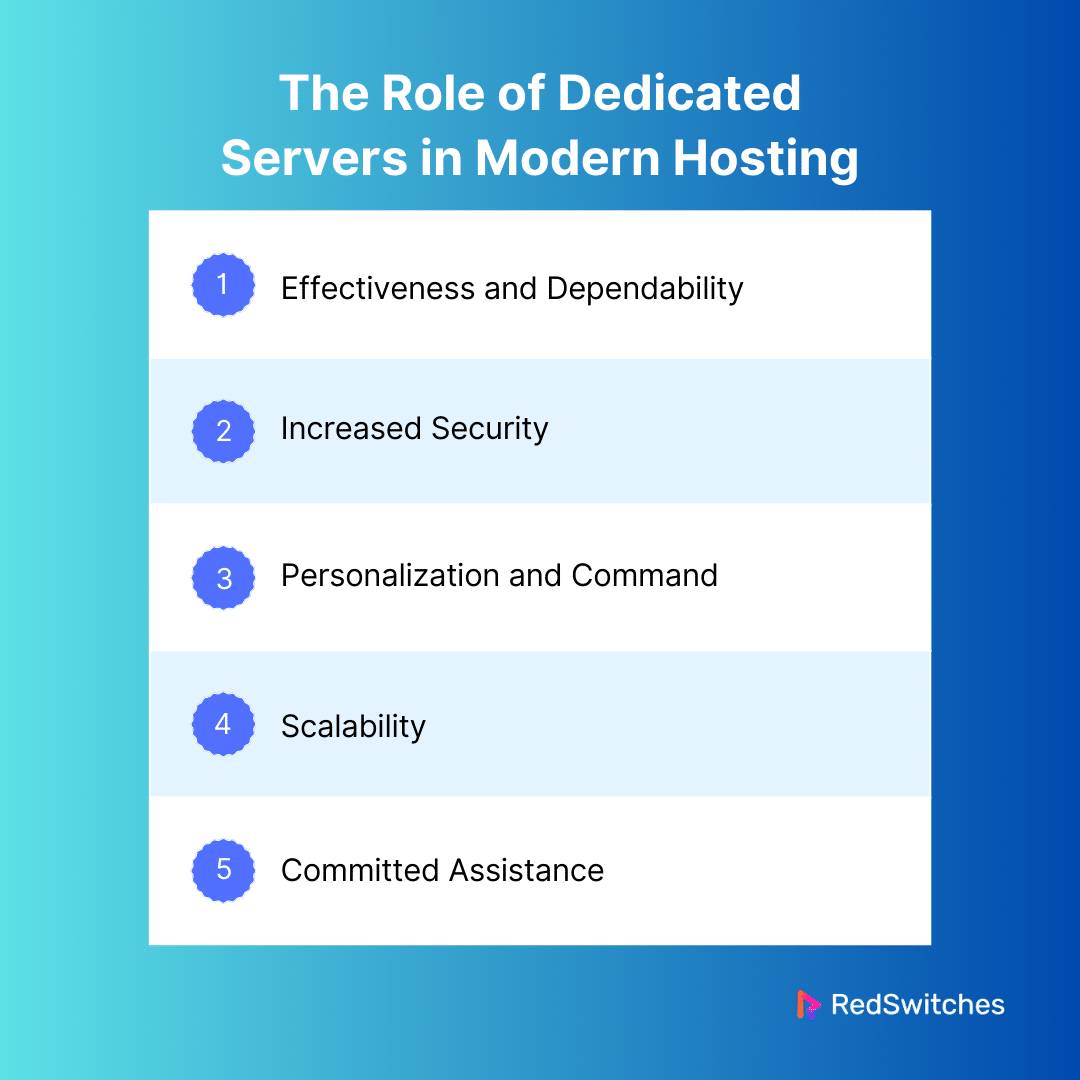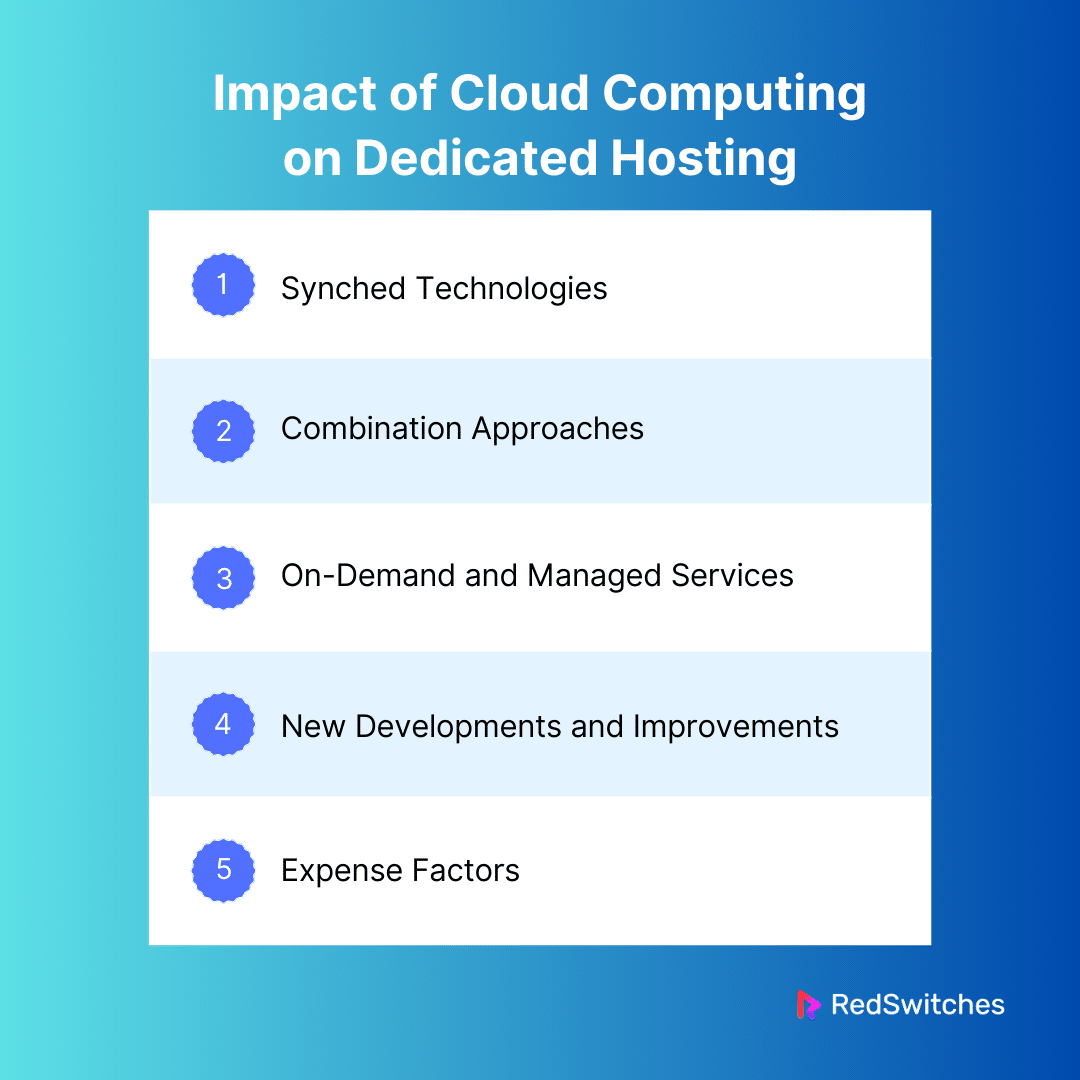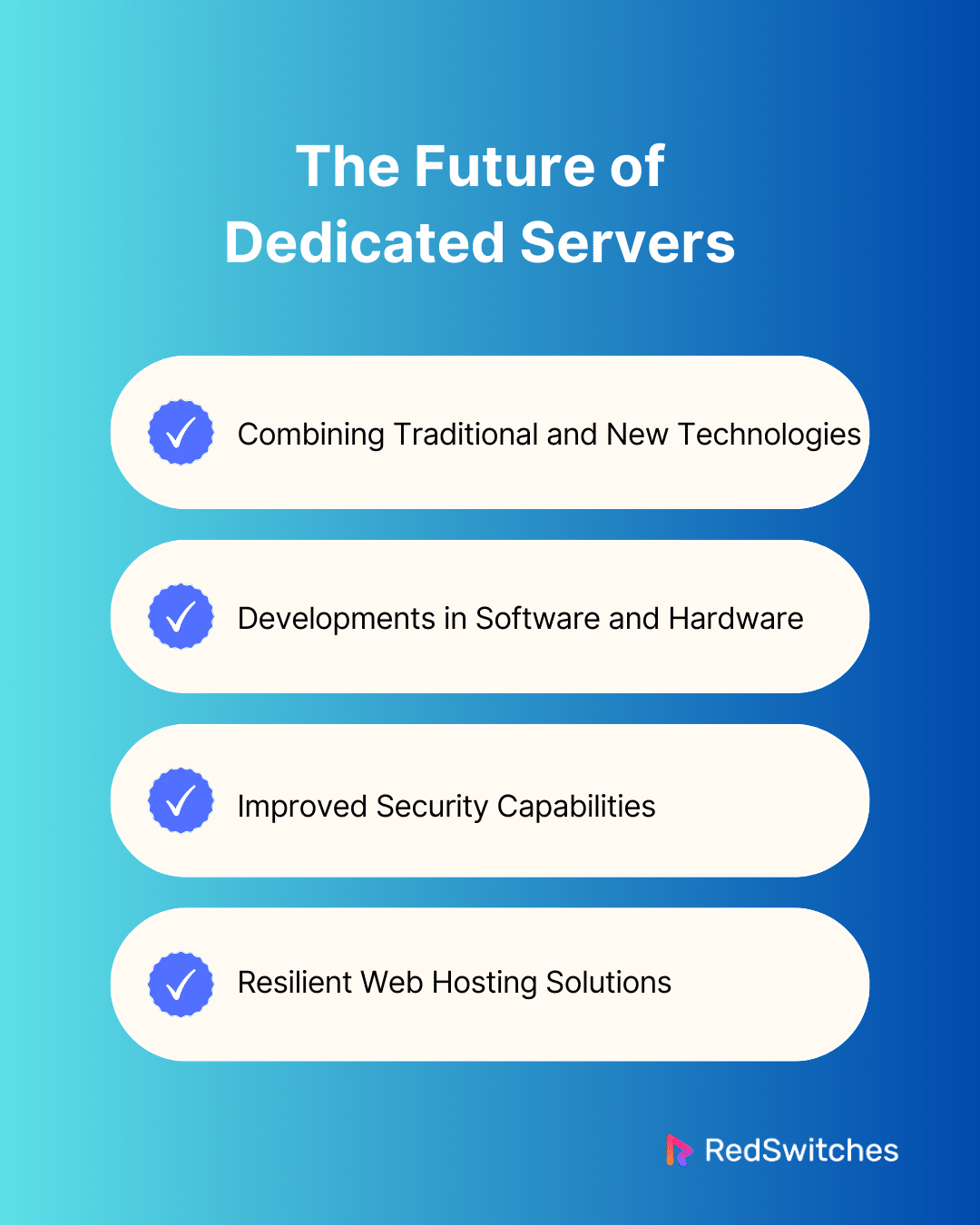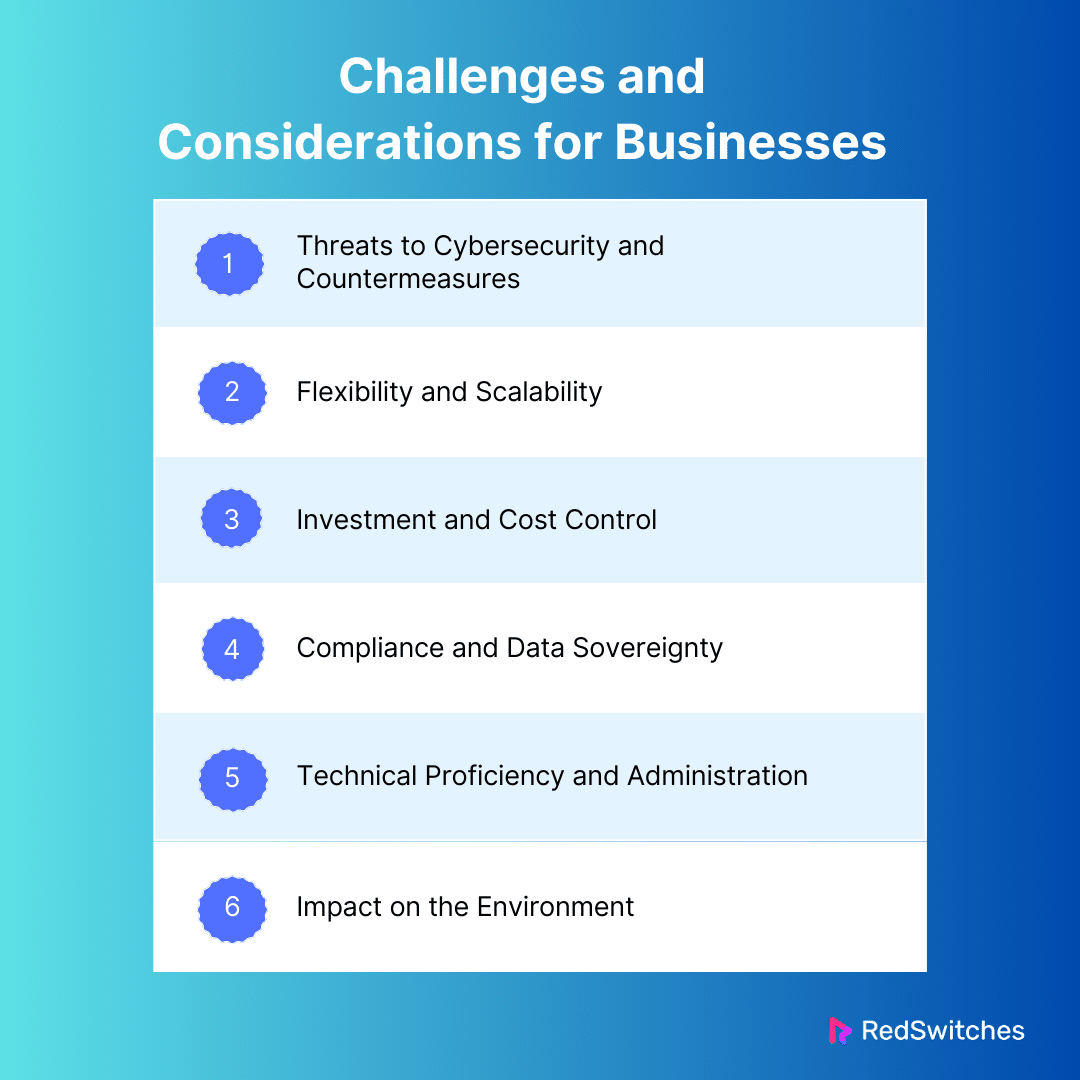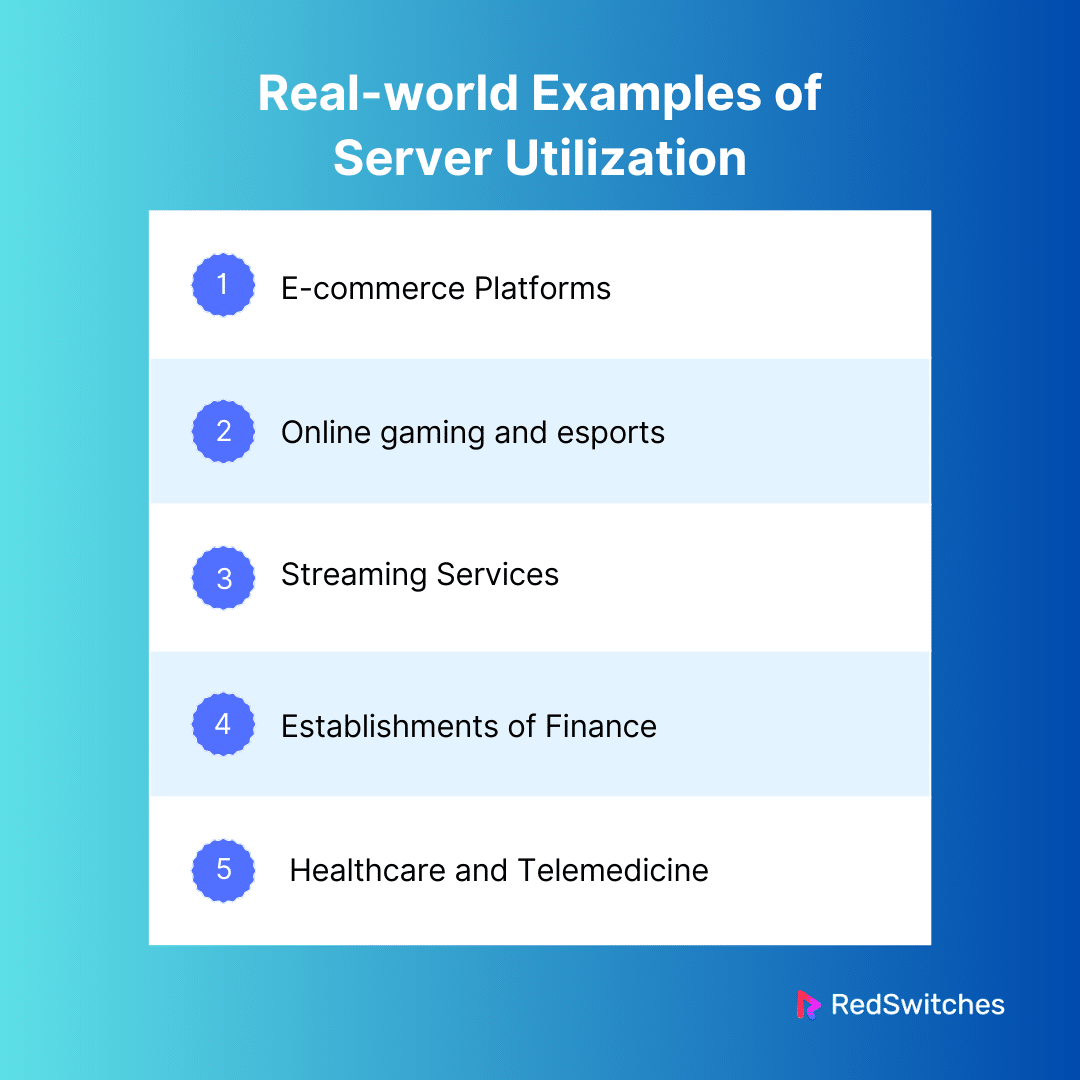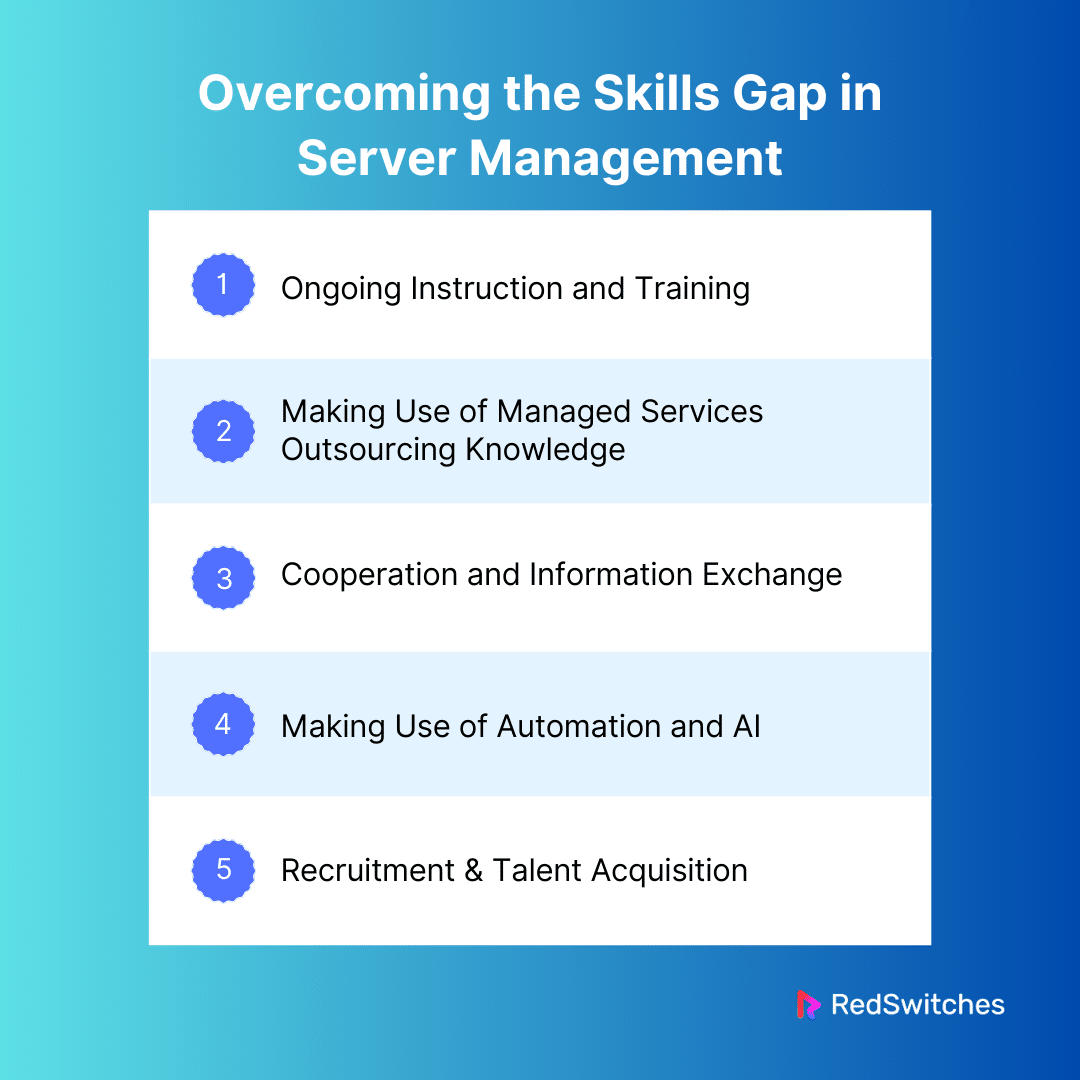Key Takeaways
- Servers originated in the early days of the Internet, evolving from simple hosting solutions to meet the growing demands of high-traffic websites.
- Servers bring technological innovations, including virtualization, cloud computing, and advancements in processor and storage.
- Dedicated servers provide key benefits such as high performance and enhanced security.
- The rise of cloud computing introduced competitive and complementary dynamics to dedicated hosting.
- The future of dedicated servers includes further integration with emerging technologies like AI and machine learning.
- Dedicated server environmental impact should be considered and the push for sustainability are influencing the dedicated hosting industry.
Dedicated servers have been a mainstay of hosting solutions in the ever-changing digital era. They have changed to fit the ever-changing demands of organizations. The journey of servers, from the modest beginnings of simple web hosting to powering intricate, high-traffic websites and applications, is a monument to technological innovation and strategic insight.
This blog post aims to clarify the complex development of servers and evolution of dedicated servers in industry. It will highlight the key events and innovations that have shaped their place in the hosting sector. We encourage readers to study the turning points. These have been added to dedicated servers’ past, present, and future. They could also influence their course in the years to come.
Table of Contents
- Key Takeaways
- The Origin of Dedicated Hosting
- The Rise of the Internet and Demand for Servers
- Technological Innovations Shaping Servers
- The Role of Dedicated Servers in Modern Hosting
- Impact of Cloud Computing on Dedicated Hosting
- The Future of Dedicated Servers
- Challenges and Considerations for Businesses
- Real-world Examples of Server Utilization
- Overcoming the Skills Gap in Server Management
- Conclusion
- FAQs
The Origin of Dedicated Hosting
Credits: Freepik
What is dedicated server hosting ? Dedicated hosting originated in the early Internet days when things were simpler. But, the groundwork for better web hosting exists today. The need for web hosting services increased as more companies and people realized the benefits of having an online presence. Dedicated hosting originated during this time and has since seen substantial changes.
During the late 1980s and early 1990s, government and academic institutions were the main users of the Internet. There was no such thing as web hosting as we know it today. These institutions owned the servers that housed the websites. Therefore, access and control for private or business usage were restricted.
The drawbacks of shared hosting, in which several websites share resources on a single server, led to dedicated hosting. This setup often caused performance problems and security concerns. It affected sites with more traffic or specific hosting needs. Dedicated hosting offers a new choice. It gives companies and individuals their own server. They get total control over their online environment. This translated into increased security, better performance, and the capacity to tailor the server to a given set of needs.
Also Read : Role of dedicated server hosting
The Rise of the Internet and Demand for Servers
Credits: Freepik
The internet’s development was a turning point in human history. It changed how we interact, share, do business, and spend our leisure. As businesses looked to create and grow their online presence, the demand for servers—especially servers—grew exponentially due to the digital revolution. Internet traffic rose. It demanded dependable, secure, and strong hosting. This demand fueled the development and refinement of dedicated hosting services.
The need for dependable, high-performance hosting solutions increased as the Internet became more essential to personal and commercial operations. High-traffic websites have complex databases and dynamic content. They may have performance needs that shared hosting setups cannot meet. Such setups distribute resources across several domains.
The growing popularity of media streaming services and the development of content delivery networks (CDNs) were major factors in the surge in server demand. Servers are becoming key parts of content delivery networks (CDNs).
CDNs are decentralized networks of servers made to send material to users globally. Similarly, to fulfill the demands of their expanding user bases, streaming services that provided music and video on demand depended on the scalability and dependability of servers.
The need for servers increased dramatically with the introduction of e-commerce. Online merchants needed hosting solutions. The solutions had to withstand traffic spikes without affecting website performance or availability. This need was especially acute during promotions or vacations.
Furthermore, servers are more appealing than shared hosting since they offer better security features than shared hosting settings, which are necessary for safe transaction processing and client data protection.
Technological Innovations Shaping Servers
Let’s delve into some key technological innovations that have played pivotal roles in this evolution.
Cloud computing and virtualization
Virtualization has been one of the most revolutionary server technologies. It lets several virtual servers run on a single physical server. Each virtual server runs a different operating system. This invention has decreased expenses, improved server environment management flexibility, and optimized physical server resource use. These advantages have grown with the addition of cloud computing. It provides scalable resources on demand. It also offers better disaster recovery and lets you install virtual servers across a dispersed network. This setup boosts performance and cuts latency.
Also Read : Advantages of Best Dedicated Server Hosting , Importance of Data Center Location in Dedicated Server Hosting
Technology of Processors
The processing capacity of servers has significantly risen due to advancements in processor technology. Dedicated server are better equipped to handle complex applications and busy websites. This is due to their multi-core processors and the development of more powerful, efficient CPUs. Also, dedicated servers now have advanced data analysis and machine learning. This is thanks to these computing power advancements.
Solutions for Storage
The advancement of storage technology greatly impacted servers. It started with Hard Disc Drives (HDDs) and moved to Solid State Drives (SSDs) and NVMe (Non-Volatile Memory express) storage. SSDs and NVMe drives make programs on servers faster and more responsive. They do this by providing faster data access and greater reliability than HDDs. These storage systems offer quick access to massive data with low latency. They have become essential for data-heavy apps and services.
Advances in Networking
Credits: Freepik
NFV, SDN, and faster Ethernet have advanced networking. They use network function virtualization (NFV), software-defined networking (SDN), and faster Ethernet standards. These developments have reduced network congestion. They have also improved flexibility and resource management. They have sped up data transfers between servers and the Internet. These innovations have been crucial in meeting the demands of worldwide online services and growing internet traffic.
Improvements in Security
The security measures put in place on servers have changed along with the evolution of cyber threats. To safeguard sensitive data, servers use technologies. These include secure access protocols, advanced encryption, and hardware security modules (HSMs). Also, dedicated server hosting security has been boosted. This came from advanced intrusion detection and prevention systems (IDPS). Also, AI and machine learning are used for threat detection.
Also Read : Does Your Organization Needs An Intrusion Detection System? A Detailed Breakdown , How Dedicated Servers Support E-commerce Platforms
Sustainability and Energy Efficiency
Innovations aim to improve energy efficiency and sustainability. The environmental impact of data centers prompted them. This impact is mostly due to the energy use of servers. The carbon footprint of dedicated hosting services has decreased a lot. This is thanks to server design, cooling, and renewable energy advances. More environmentally friendly hosting options are being made possible by power supplies, CPUs, and data centers that use green data center techniques and practices.
The Role of Dedicated Servers in Modern Hosting
Let us understand the role of Servers in Modern Hosting.
Effectiveness and Dependability
Servers’ exceptional performance and dependability are one of their main benefits. Servers devote all their resources to a single client. Shared hosting divides resources among many users. Clients can utilize all of the server’s memory, processing power, and storage without dealing with the demands of other users, this guarantees high levels of server performance. It is key for busy websites and apps. They need it because they have lots of traffic and processing power. It lowers the chance of downtime and ensures a smooth user experience.
Increased Security
Servers are the best option for managing sensitive data or online transactions. They provide better security. Clients can install firewalls, security protocols, and encryption standards on their servers to fit their needs. The platform is more secure. It’s offered to e-commerce sites, banks, and others who value data protection. This security comes from exclusive control over the server environment. It reduces the chance of vulnerabilities.
Personalization and Command
Credits: Freepik
One key benefit of dedicated hosting is the capacity to alter and manage the server environment. Customers have some flexibility. They can select the operating system, software, and configurations that fit their needs. This is not available in shared hosting. This also applies to server configurations. It enables optimizations that improve hosted services’ reliability, security, and speed. servers give companies with particular or intricate hosting needs the flexibility to customize the hosting environment to their needs.
Scalability
Servers offer scalable options. They meet growing business needs. But, they are often linked to a fixed number of resources. Clients can upgrade RAM, CPU, and storage to expand the server’s capability. Furthermore, a few dedicated hosting companies give customers flexible plans that allow them to swiftly scale up or down their resources in response to demand. This allows businesses to effectively handle peak loads without paying extra for capacity that isn’t being used.
Committed Assistance
The hosting company frequently offers more assistance for dedicated hosting. This can include managed hosting services, where the supplier handles server upkeep, security upgrades, monitoring around the clock, and technical assistance. This kind of support is priceless for companies without substantial IT resources because it guarantees that servers operate at peak efficiency, freeing up staff members to concentrate on their main responsibilities rather than maintaining server infrastructure.
Impact of Cloud Computing on Dedicated Hosting
We examine the complex ways cloud computing affected dedicated hosting. We emphasize the changes, competition, and synergies. These factors have affected the hosting industry.
Synched Technologies
Cloud computing and dedicated hosting are frequently complementing technologies rather than just rivals. The cloud is scalable, flexible, and cost-effective. Many firms use it, especially for workloads with varying demands. They use dedicated hosting for workloads. These workloads need better security, control, and high performance. Servers are reliable and have devoted resources. The cloud is flexible. It lets businesses tailor their infrastructure to meet many demands.
Combination Approaches
Cloud computing has influenced the rise of hybrid hosting. These combine cloud services and servers. This hybrid strategy has the best features. It combines the performance and security of dedicated server hardware. It also has the scalability and flexibility of the cloud. Businesses can use cloud resources for less sensitive jobs. They can use them to handle spikes in demand and host important programs on servers. These setups provide customized infrastructure. It can adapt quickly to the changing needs of businesses. This improves productivity and effectiveness.
On-Demand and Managed Services
Credits: Freepik
The popularity of managed services and on-demand computing has hurt dedicated hosting. This is due to cloud computing. These days, hosting companies offer managed dedicated hosting services. They handle the server’s upkeep, security, hardware, and software. With this strategy, organizations get the benefits of servers. They avoid the headache of needing in-house technical skills. It matches the simplicity and convenience of cloud services.
New Developments and Improvements
Competition from cloud services has pushed advances in networking, servers, and energy efficiency. Hosting companies have invested in better servers to improve performance, dependability, and scalability. They have also improved data centers and networking. These improvements guarantee that dedicated hosting will always be desirable. It is for companies with strict needs.
Expense Factors
The pay-as-you-go pricing model of cloud computing has affected how dedicated hosting services set prices. Servers typically have a fixed cost. However, several companies now offer flexible pricing. For example, they let you scale up or down during busy times. This strategy, which only pays for more resources when necessary, aids companies in more efficient cost management.
The Future of Dedicated Servers
Let’s explore the future of Servers.
Combining Traditional and New Technologies
Artificial Intelligence and Machine Learning can optimize server functions. These include load balancing, security monitoring, and predictive maintenance. Servers will slowly add AI and ML algorithms. Increased productivity, decreased downtime, and more individualized hosting solutions are all benefits of this connection.
The Internet of Things (IoT) is developing fast. Servers will become much more important. They will process and store the huge data volumes these devices create. server infrastructure will improve due to the necessity for low-latency networks and real-time data processing, which will make them more appropriate for Internet of Things applications.
Due to blockchain applications’ high security and processing power requirements, servers will be modified to accommodate them better. Hosting blockchain networks on specialized servers can ensure the integrity and performance of decentralized apps.
Also read Artificial Intelligence and Machine Learning: Unveiling the Synergy
Developments in Software and Hardware
Credits: Freepik
As processors become more potent and energy-efficient, specialized servers can perform increasingly complicated calculations more efficiently. This would benefit applications requiring a lot of data, including video processing and big data analytics.
The trend of Software-defined Everything (SDx) is increasing. This includes greater use of software-defined data centers (SDDCs), networking (SDN), and storage (SDS) will use software-defined networking (SDN). It helps them have more automated and adaptable server setups. This approach will let businesses optimize their servers. They can do so in response to changing workload needs.
Improved Security Capabilities
Server security methods will change as cyber threats do. Expect better intrusion detection. Also, expect automated security and encryption that can find and stop such threats.
This is because they let businesses keep data in specific places and comply with regulations. To satisfy these demands, hosting companies will probably provide a wider range of geographically distributed data center locations.
Resilient Web Hosting Solutions
New energy-efficient hardware and renewable energy sources for servers are developing. The impact of data centers on the environment will fuel this development. There will be an increase in the use of sustainable materials in server manufacture and techniques like liquid cooling.
Hosting companies want to achieve carbon neutrality. They use energy-saving techniques, green technologies, and carbon offset schemes. Businesses who care about the environment and want to reduce their digital carbon footprint may find this appealing.
Edge computing will make hosting more decentralized. Servers will be closer to the user. This will lower latency and boost performance for real-time apps. This will need a network of smaller, geographically scattered data centers.
Challenges and Considerations for Businesses
Now, let’s focus on the challenges and considerations for Businesses.
Threats to Cybersecurity and Countermeasures
Attacks are getting more complex. They are happening more often. This trend is putting cybersecurity at the top of the list. Companies need to ensure the most recent security measures. These include intrusion detection systems, firewalls, and frequent security audits. They are to defend against unauthorized access to their servers.
A data breach might have serious financial and reputational effects. servers are more secure because they are isolated. But, they must follow strict data protection rules. This is especially true when they handle sensitive customer data.
Also Read Cybersecurity Frameworks: Exploring Security Frameworks, Standards, Risks, & More
Flexibility and Scalability
Credits: Freepik
Companies face one issue: rapidly increasing their server capacity. They must do this in response to surges in traffic or rising data needs. However, servers offer strong and reliable resources. But scaling up often needs physical hardware changes. These changes are slower than with cloud options.
Servers make it hard to stay updated with new hardware or software. Integrating new technology may be harder. Companies need to budget for frequent updates and anticipate some outages during these changes.
Investment and Cost Control
Servers cost more upfront. They cost more than cloud or shared hosting. Companies need to weigh the cost of maintenance, software licenses, and hardware. They must weigh this against the long-term return on investment.
Servers have continuing expenses. These include bandwidth, energy, and technical help. To keep these costs under control, server resources must be optimized and managed effectively.
Compliance and Data Sovereignty
Companies have to deal with a complicated web of data protection laws, like the CCPA in California and the GDPR in Europe. Servers provide better control over data location and security. This helps with compliance. But, companies still need to make sure they follow all laws.
The location of servers may impact data sovereignty. This may affect how data is transported and stored. When selecting server locations, companies must be mindful of data sovereignty and residency rules.
Technical Proficiency and Administration
Requirement for Specialised Skills: Technical know-how is necessary for managing servers. Businesses must hire professionals or train their workers. This is needed to ensure effective server operation, maintenance, and troubleshooting.
Complexity in Management: servers, as opposed to managed hosting alternatives, frequently necessitate that companies maintain upgrades, security patches, hardware, and software, which can complicate matters and increase the strain on IT personnel.
Impact on the Environment
A business’s carbon footprint is increased by the high electricity use of servers. This use adds to their energy consumption. Businesses are searching for renewable energy sources and energy-efficient solutions as they increasingly consider how their IT infrastructure affects the environment.
Real-world Examples of Server Utilization
Now, let’s look at some real-world examples of Server utilization.
E-commerce Platforms
To handle its huge number of transactions, customer data, and inventory, Amazon depends on servers. These servers include sophisticated security features to safeguard private financial data and are designed for rapid data processing. The servers are strong and dependable. They guarantee that the platform stays responsive and safe from cyberattacks. This is important during busy shopping seasons like Black Friday and Cyber Monday.
Online gaming and Esports
Gaming companies like E-Sports use servers. They use them for their online multiplayer games. These servers offer the low latency and bandwidth required for immersive real-time gaming. They also enable worldwide competitions. In them, players compete globally. They ensure fair play and top performance for each player.
Also Read: Dedicated Servers for Gaming: Transforming the Multiplayer Experience
Streaming Services
For instance, Netflix and Spotify are streaming behemoths. They use specialized servers to send content to millions of global consumers. To reduce latency and guarantee seamless streaming of high-definition audio and video material, these servers are positioned strategically worldwide. Thanks to servers, these businesses can simultaneously manage huge media file libraries and streams. This gives customers continuous access to their services.
Establishments of Finance
Big banks and financial firms use servers. They use them for their online banking platforms. They manage accounts and do transactions. They also enforce strict security to stop fraud and cyberattacks. For example, JP Morgan Chase uses servers. They use them to ensure customer information’s privacy and accuracy. This enables safe data exchanges.
Healthcare and Telemedicine
They rely on specialized servers. These handle patient information, appointment scheduling, and remote consultations. They are used by healthcare providers and telemedicine platforms—like Teladoc. Strong security is needed to protect patient data on these servers. This is to comply with US healthcare laws like HIPAA. In the healthcare industry, servers facilitate effective data management, enable telehealth service delivery, and guarantee patient privacy.
Overcoming the Skills Gap in Server Management
Many organizations face a major challenge. It is in closing the skills gap in server management. This is hard. It’s due to technology’s fast growth and IT’s ongoing complexity.
Ongoing Instruction and Training
Invest in Employee Development. Businesses should give IT employees access to ongoing education and training. This can involve paying for certificates. It can involve attending workshops. And it can involve giving people access to online classes. The classes cover the newest developments in cybersecurity, server management, and emerging tech.
Making Use of Managed Services Outsourcing Knowledge
Using managed hosting services can help many firms. This is true for small and medium-sized enterprises (SMEs). They lack the funds to invest heavily in IT professionals to close the skills gap. MSPs provide the knowledge and skills to run and maintain servers. This frees up organizations to focus on their main operations.
Cooperation and Information Exchange
Promote a Culture of Learning: Encourage cooperation and knowledge exchange inside the company. Team meetings, internal workshops, and collaboration tools can help. Programs for peer learning and mentoring can also help less seasoned employees. They can help them gain access to the expertise of more seasoned workers.
Making Use of Automation and AI
Accept Automation Instruments: The amount of manual labor involved in server management tasks like patch management, monitoring, and backups can greatly decrease via automation. Artificial intelligence (AI) and machine learning (ML)-enabled tools can also anticipate and proactively fix such problems before they hurt server performance.
Recruitment & Talent Acquisition
Methods of Strategic Hiring: Organisations should seek to develop present staff members and draw in new talent with the requisite abilities. This could entail revising job descriptions, providing competitive pay, and emphasizing company advancement opportunities. Programs for apprenticeships and internships can also serve as a pipeline for future talent.
Conclusion
It’s clear from the history of servers in hosting that these strong, adaptable systems have kept changing. They do so to meet the ever-evolving needs of companies and organizations worldwide.
Servers have been invaluable in the digital age. They started by overcoming the flaws of shared hosting. Now, they support sophisticated apps, e-commerce platforms, and large online services. Servers are expected to stay at the forefront of hosting. This is due to their potential future. It includes integrating new tech and ongoing security, speed, and sustainability improvements.
RedSwitches is proof of the continued innovation and worth in the dedicated hosting industry. Providing a selection of server options to meet the various demands of contemporary enterprises.
Our unmatched customer care, high-tech systems, and strong infrastructure represent the progress of dedicated hosting.
FAQs
Q. When were servers invented?
Servers were invented in the late 1960s with the development of computer networking and time-sharing systems.
Q. Why is it called a server?
It is called a “server” because it serves information to other computers, known as clients, in a network.
Q. What is a server setup?
A server setup is when a hosting provider leases a server to a single client, allowing them to have full control over the server’s resources and configuration.
Q. How does server installation work in a server setup?
In a server setup, the server installation process involves setting up the operating system, configuring server software, and preparing the server for use by the client.
Q. What are some common tasks a server admin performs in a server setup?
Server admin in a server setup may perform tasks such as managing server resources, monitoring server performance, configuring security settings, and troubleshooting server issues.
Q. What is the difference between a server setup and shared servers?
In a server setup, the client exclusively uses the server’s resources, whereas in shared servers, multiple users share resources on the same server.
Q. How can I run my server when the system boots?
You can set up a batch file that starts your server when the system boots, ensuring that your server is always running and accessible.
Q. What is the significance of root access in a server setup?
Root access in a server setup gives the client full control over the server, allowing them to change the server’s configuration and install additional software.
Q. How can I provision multiple servers for different workloads?
You can provision multiple servers for different workloads by working with a hosting provider to set up and configure each server according to its specific requirements.
